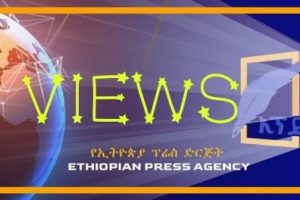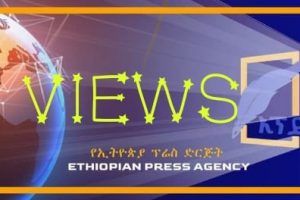BY MENGISTEAB TESHOME
Of late, Sam Kahamba Kutesa Ugandan Foreign Minister said “The problem in the Nile basin riparian countries is not lack of water resources but energy, utilizing shared water resources through negotiation is advisable”
Indeed if the Great Ethiopia Renaissance Dam (GERD) is managed properly, the GERD offers benefits to Ethiopia and the wider region. Ethiopia sees domestic electrification and international energy sales from the GERD as its pathway out of poverty, which has plagued the country throughout modern history and shaped its global image since the droughts of the 1980s.
The GERD promises over 15 TWh of energy generated annually within a country that currently produces approximately 14TWh benefiting Ethiopia and the countries that plan to purchase its relatively inexpensive electricity.
Above all GERD benefits, Sudan in many ways and the Sudanese also recognizes the benefits the GERD will bring to its own economically impoverished nation.
The dam will provide a source of inexpensive electricity, minimize flooding, and reduce silt accumulation in its dams and canals, and, most concerning to Egypt, allows Sudan to withdraw additional water to expand agriculture.
For many years, Sudanese leadership and people were backing the construction of the Dam for the immense benefits it could bring to the region and cooperation among the region.
But thanks to some military leadership that are willingly ignoring the lasting benefits and opted to run the third party interest at the expense of the Sudan people’s right to benefit its natural resources, a failure of immorality and integrity.
GERD could not be the source of conflict rather cooperation, Ethiopia has been working around the year to frame and establish well-organized institutions that could serve the interest of all in accordance, but the efforts failed for the persistent position of Egypt for years.
As the Ugandan Foreign Minister said, it is not about the lack of water rather block Ethiopia from development, which is unacceptable.
Kevin Wheeler is Oxford Martin Fellow in the Environmental Change Institute at the University of Oxford and Richard Caplan is Professor of International Relations at the University of Oxford wrote an article entitled How Natural Resource (Mis-) management in the Nile River Basin May Threaten Stability” noted that reconciling these differences is critical; however,
existing cooperative frameworks are insufficient. The only standing agreement on Nile water allocation was bilaterally signed by Egypt and Sudan in 1959 for the complete use of the river, distributing 55.5 and 18.5 billion cubic meters (bcm) to the two countries respectively, plus 10 bcm for evaporation losses behind Egypt’s High Aswan Dam.
The signatories believe this agreement constitutes “historic rights,” although Ethiopia was not part of this agreement. Ethiopia instead prefers a Cooperative Framework Agreement that has been ratified by only four upstream countries, and that Egypt and Sudan oppose.
Anticipating Egypt’s opposition, Ethiopia strategically selected the dam’s location near the border with Sudan, making it impractical for irrigation purposes within Ethiopia.
Therefore, when Ethiopia claims that the dam will not significantly impact the water supply to Sudan and Egypt, they can legitimately point towards its non-consumptive nature. Ethiopia is careful, though, not to make any concessions that might legitimize the 1959 Agreement, as doing so might foreclose their future aspirations for water use elsewhere in the basin.
Both academics also noted that “With its historic position challenged, though Egypt now recognizes the need to support Ethiopia’s development but insists that it must not come at a cost to their country. In March 2015, Egypt, Sudan, and Ethiopia signed a Declaration of Principles (DoP) that recognized the legitimacy of the GERD.
The Declaration also embedded the competing legal principles of “equitable and reasonable utilization” of resources and a duty “not to cause significant harm” to other users, found in the UN Watercourse Convention.
Ethiopia has the right to develop and use its natural resources based on the agreements among the three nations and UN documents.
Sudanese should question why Sudan leadership is not refraining from letting Egypt stir the region and play a third-party game, which could harm the lasting benefits of the Sudanese.
The real reason the military leadership grabbed power and plays third party game is that they are criminals who massacred innocents in Darfur and other conflicts. Hence they hope military assistance from Egypt will enable them to remain in power for years.
The Ethiopian Herald March 13/2021





